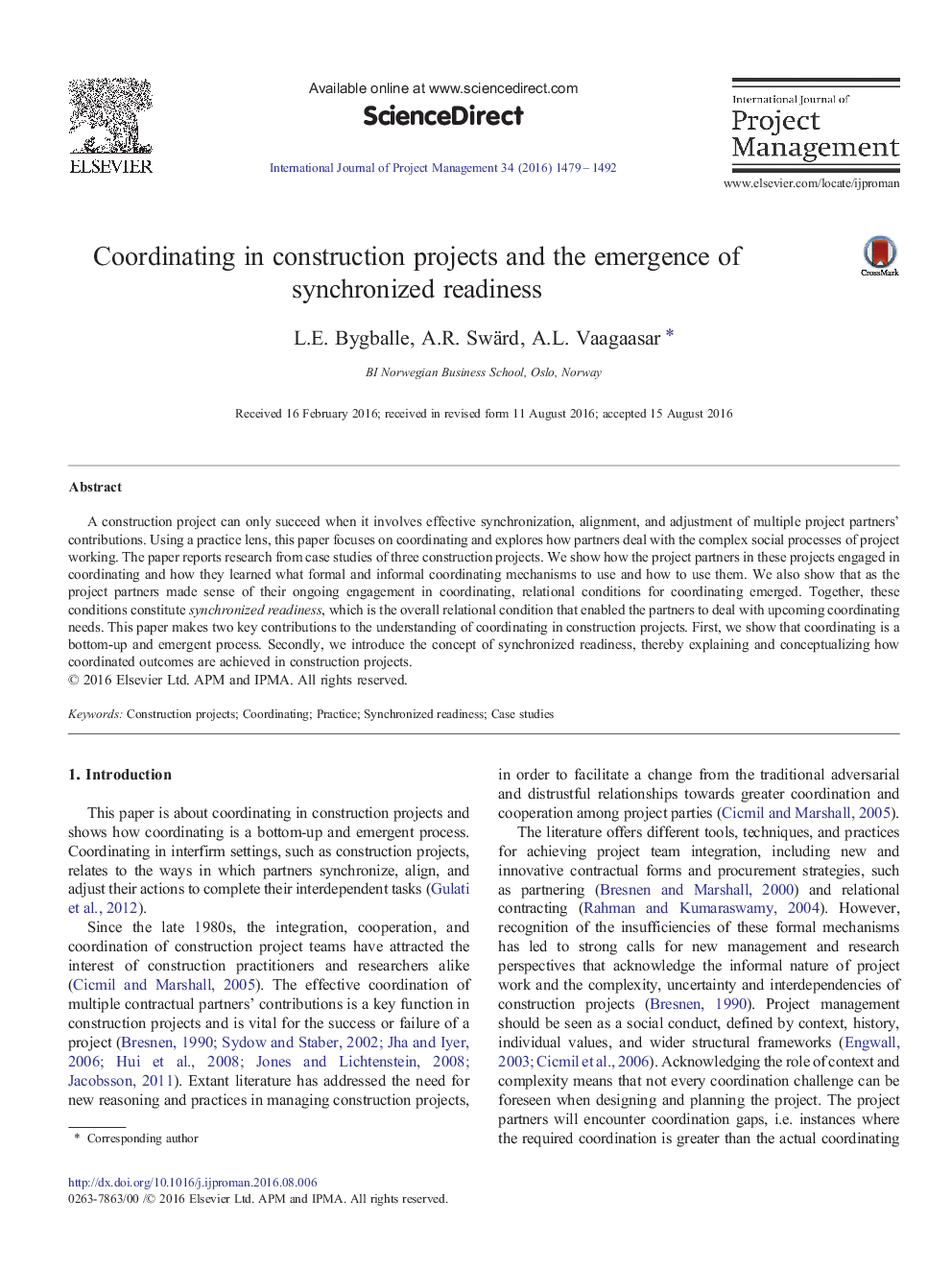| Article ID | Journal | Published Year | Pages | File Type |
|---|---|---|---|---|
| 4922255 | International Journal of Project Management | 2016 | 14 Pages |
Abstract
A construction project can only succeed when it involves effective synchronization, alignment, and adjustment of multiple project partners' contributions. Using a practice lens, this paper focuses on coordinating and explores how partners deal with the complex social processes of project working. The paper reports research from case studies of three construction projects. We show how the project partners in these projects engaged in coordinating and how they learned what formal and informal coordinating mechanisms to use and how to use them. We also show that as the project partners made sense of their ongoing engagement in coordinating, relational conditions for coordinating emerged. Together, these conditions constitute synchronized readiness, which is the overall relational condition that enabled the partners to deal with upcoming coordinating needs. This paper makes two key contributions to the understanding of coordinating in construction projects. First, we show that coordinating is a bottom-up and emergent process. Secondly, we introduce the concept of synchronized readiness, thereby explaining and conceptualizing how coordinated outcomes are achieved in construction projects.
Related Topics
Physical Sciences and Engineering
Engineering
Civil and Structural Engineering
Authors
L.E. Bygballe, A.R. Swärd, A.L. Vaagaasar,
